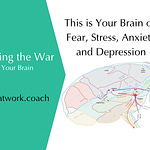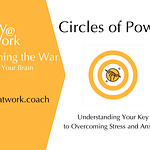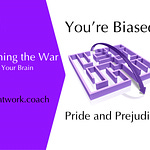A few weeks ago I recorded a podcast about the Power of Trust to Succeed and many people wrote and asked why it is that you can do something with the very best intentions but find that it backfires.It seems that it is very easy to lose someone's trust but oh so difficult to gain it back. Think of trust as a wallet full of cash. I know that it's rare to have such a thing, but imagine, OK? Say I have a couple of thousand bucks in various bills in my trust wallet. Every time I do or say something that causes you to lose faith in me, to lose your trust, for whatever reason, is like asking you to take whatever amount of cash out of my wallet. Of course, being a normal human being, you'll take the 100 dollar bills first. If, foolishly I hurt you in some way again, you'll take another chunk from my wallet. A third time and you'll probably take the wallet and empty it. Now I have no trust with you. Is there any way I can influence you if you don’t trust me? Of course not. [player] If you do not trust me, the only way I can get you to do what I want would be to manipulate you, or coerce you. That is, I would resort to lies, half-truths, twisted words, force, threats or bullying. Instead, slowly and steadily and patiently, I work hard and begin to earn your trust back. Little by little, you begin to trust me again. So you give me a two dollar bill from the hundreds you took when I lost your trust. I'm consistent, and build trust with you again. And perhaps you'll give me back a five dollar bill or even, if I've been especially good, 10 bucks. This goes on and on, because you'll be very reticent to give me back your trust. It's normal. It's the way your brain works. You hold a very vivid, pain filled memory of the times I broke your trust and a distant, slightly happy memory of when I build it in the first place. [popup type="youtube" link_text="Click to open my video on your Brain on Stress and Anxiety" href="https://www.youtube.com/watch?v=gmwiJ6ghLIM" /] Painful memories are much more dominant than good memories. We are wired for negativity. We have two networks for this in our brains: The pain network, which includes the Thalamus, the Dorsal Anterior Cingulate Gyrus and the Insula. Then we have the Reward network, which consists of the Amygdala, the Ventral Striatum and the Ventromedial Prefrontal Cortex. Now you don’t need to remember all the terms, but I've link some great articles and videos above if you’re interested to learn more about the neuroscience behind all of this. When I cause you pain, such as physically inflicting pain, or snubbing you, taking something from you that you care about, treating you unfairly, betraying you, or simply speak negatively about you, then your pain network is activated. Your reward network is activated when you feel things like physical pleasure, a sense of belonging or inclusion, having a good reputation with others, being treated fairly and justly, and even giving to others - because of a feeling of abundance, or simply being appreciated for doing something or just for being you. These things make you feel good. Smart leaders know this and continuously activate your reward network - which makes you more productive and effective. Poor leaders activate your pain network. The biggest difficulty for leaders is one word and that word is "continuously". A leader can be deemed trustworthy by you for years and then they inflict pain on you in some way. They break your trust. Even blaming others for their own failings could be painful for you. At that moment, you take that first big bill from their wallet full of trust. You may trust them again, but there will be a delay in making the decision to trust as you check your personal records - first in the insula and then in the Anterior Cingulate Gyrus (ACG). The insula in your brain, helps us anticipate what something will feel like before it happens, like the proverbial “gut-feel” or “6th-sense”. The Anterior Cingulate Gyrus (ACG) allows us to shift betw
Share this post

LA 018: How Great Leaders Build Trust and Increase Engagement
www.joyatwork.coach
LA 018: How Great Leaders Build Trust and Increase Engagement
Mar 19, 2016
Joy@Work Podcast
Helping marketplace leaders #UnStuck their true potential to thrive in life and leadership to build a successful, sustainable business with collaborative, high performance teams and Joy@Work with practical, neuroscience-based AdvantEdge Guides and coaching.
Helping marketplace leaders #UnStuck their true potential to thrive in life and leadership to build a successful, sustainable business with collaborative, high performance teams and Joy@Work with practical, neuroscience-based AdvantEdge Guides and coaching.Listen on
Substack App
RSS Feed
Recent Episodes














LA 018: How Great Leaders Build Trust and Increase Engagement